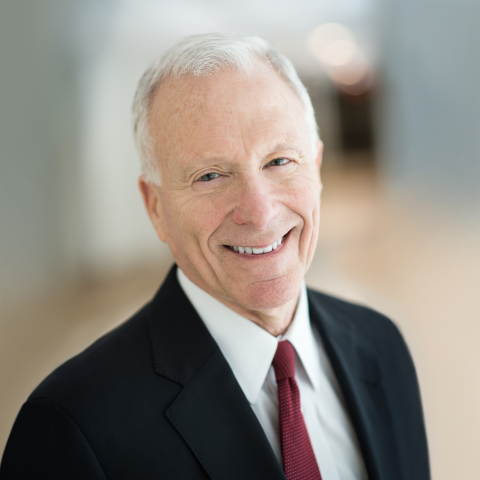After some 80-plus years of trial and frustration, the Muslim Brotherhood has achieved its greatest triumphs to date. In Egypt, the Brotherhood won parliamentary elections emphatically, and now, despite prior claims to the contrary, it has announced a candidate for President of Egypt.
How does the Brotherhood understand this moment? Do these events herald a new appreciation of the virtues of democracy, or will the Brotherhood still be guided by the visionary goal of an "Islamic State" that seeks unity in obedience to its Supreme Guide and senior leadership? That goal was expressed by the Brotherhood's founder, Hassan al Banna, in a famous formula:
"Allah is our objective. The Prophet is our Leader. The Qur'an is our Constitution. Jihad is our way. Dying in the way of Allah is our highest hope."
Some scholars -- for example, the French expert Oliver Roy -- argue that the contemporary Brotherhood is no longer seriously attached to Banna's vision, but has abandoned as misguided the fruitless quest for the Islamic State. The Brotherhood will be still further transformed and "moderated," Roy told columnist David Ignatius by the experience of actual governance: "Democratic culture does not precede democratic institutions; democratic culture is the internalization of these institutions."
In this view, the Brotherhood will conclude that a new path, as well as a new spirit, is required -- and most importantly a benign spirit and path. A recent visit by Brotherhood representatives -- part of a so-called "charm offensive" -- reportedly left Obama Administration officials cautiously optimistic about the Brotherhood undergoing such a benign evolution. According to Ignatius, President Obama has placed a "cosmic wager" on such a new, mellow Brotherhood emerging.
A wager it certainly is, but the odds would seem rather long if one is to judge by the views of the Brotherhood's recently-named candidate to be president of Egypt, Khairat al Shater. Shater was, until his nomination, the deputy head of the Brotherhood and as such its chief operating officer. Among his responsibilities was the direction of the Brotherhood's program of Nahda or renaissance. Shater provided a remarkably full and clear account of his views in a speech on Nahda he gave in Alexandria to a large gathering of Brotherhood faithful in April 2011.
Shater rejected -- root and branch -- any notion of the Brotherhood seeking a new vision, spirit and path. He emphatically reaffirmed Banna's goal and mission which he described as "Restoring Islam in its all-encompassing conception; ... the Islamization of life, empowering of God's religion; establishing the Nahda of the Ummah [the global Muslim community] and its civilization on the basis of Islam and [ultimately] the subjugation of people to God on Earth."
Equally emphatically he reaffirmed the wisdom of Banna's "method" and its success -- a success which was revealed rather than contradicted by recent events. Banna's method was to "build" in progressive order beginning from the "Muslim individual" and proceeding through the "Muslim family, the Muslim society, the Islamic government, the global Islamic State and [eventually] reaching the status of 'preeminence' or 'mastership' [Ustathiya] with that State." Shater sees that process, which had already done so much to transform Muslim society, as self-evidently entering the next phase, that of Islamic government, just as Banna had foreseen.
Similarly the present success also vindicated the instrument Banna had created to pursue this method -- to wit the Society of the Muslim Brothers -- and its mode of organization and operation. The latter was distinguished by the careful hierarchical organization of its various sub- groups and the strict discipline exercised by the Supreme Guide and its Bureau of Guidance. This had enabled it to pursue its mission productively through many long years, including periods when it was subject to extreme oppression. No other group of Muslims, however pious and however devoted they might be to the general goal of the Brotherhood, was like it in style or accomplishments.
All of these things -- mission, method and organization -- were as Shater put it "constants" and not "variables" and not subject to change. Nor did they ever need to be, since they were derived from the highest and most successful model ever -- that of the prophet Muhammad, his companions and successors. Following this model, the Brotherhood had created individual members who were "a walking Qur'an; whose faith, worship, manners, relationships, behavior, thoughts and emotions were identical to the Islam that Muhammad received from God Almighty."
So too had it adhered to the guidance of Omar bin Al-Khattab, the second caliph, who had stated that "there is no religion without a Society, no Society without an Imam and no Imam without obedience." On this basis, Shater observed, Omar had been the architect of the greatest of the early Muslim conquests and the global Islamic state which had endured for a 1000 years. Brotherhood organization and discipline had followed this model.
But what of the "variables" which Shater did admit existed? Were there new circumstances which might require new methods and policies in pursuit of "Brotherhood work?" Indeed there were according to Shater -- for example, the Brother's establishment of a political party -- the Freedom and Justice Party. This was unprecedented in Brotherhood history. But Shater was at some pains to emphasize that this and other possible innovations were entirely secondary. In particular, political parties as a whole were of alien Western origin and a mode of political conflict. They thus enjoyed no particular sanctity. Indeed, as modes of political conflict, Western-style parties violate the unity and harmony which is the goal of Muslim politics. If they were useful in the present circumstances, fine; if not, they could and would be dispensed with.
Of course Shater is only one man and there might be others in the Brotherhood who hold different views. In fact it is known that there are, especially among the young. In his speech, Shater acknowledged them and professed to understand them. Still he cautioned them to remember that they were inexperienced; worse still that their experience belonged to an era which lacked the brutal experience of men like himself who had spent much time in prison and suffered other great injustices. It was important to take the long view and in any event necessary for them in light of the principle of Brotherhood discipline. The Brotherhood could and did entertain debate about the "variables." But such debate was resolved through its highest organs and once decisions were taken they were obligatory. That was a "constant."
The dominant view of the Brotherhood still sees the "democratic institutions" to which Roy and others refer as a distasteful means to power, one which could be discarded as soon as the unity of obedience to a rightful leadership could be achieved. Thus, so long as Shater and his followers dominate the Brotherhood -- and his authority may well increase if he is elected president -- we may question the wisdom of the President's wager.















